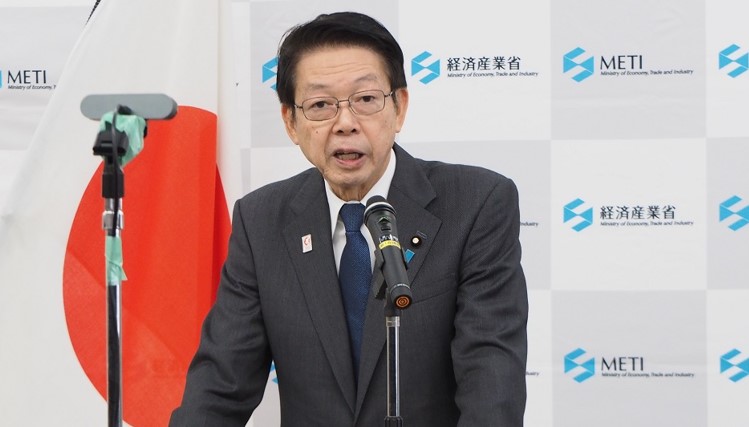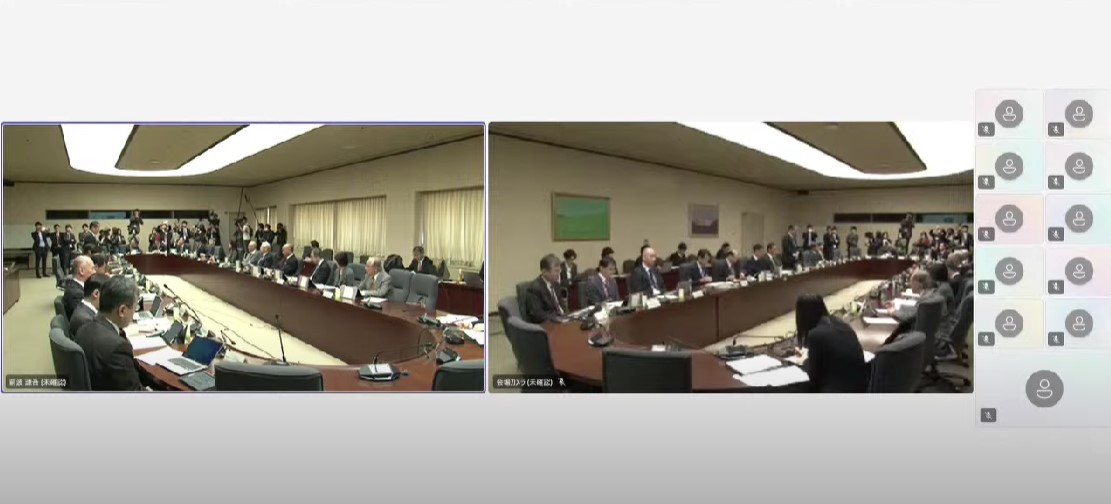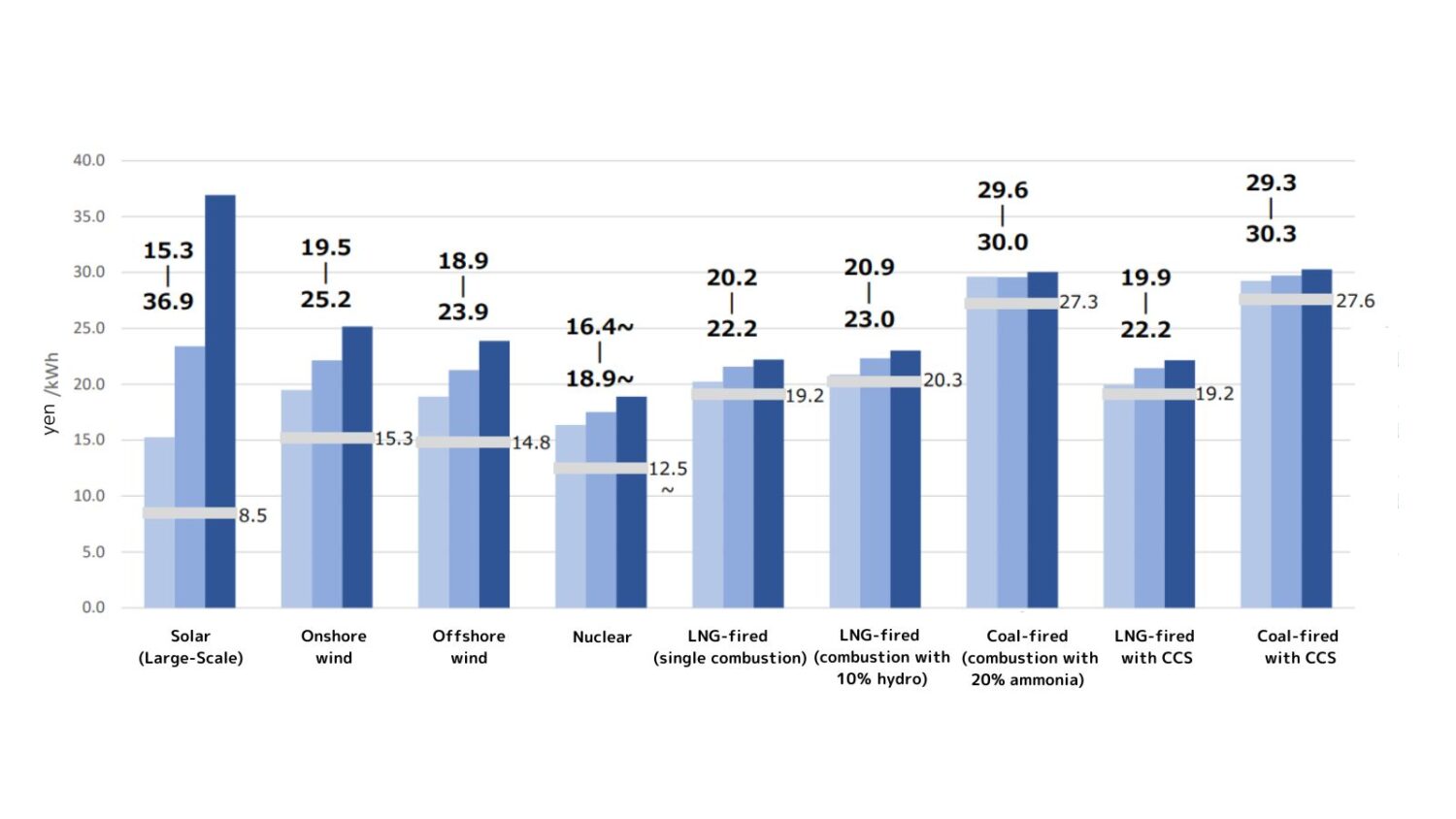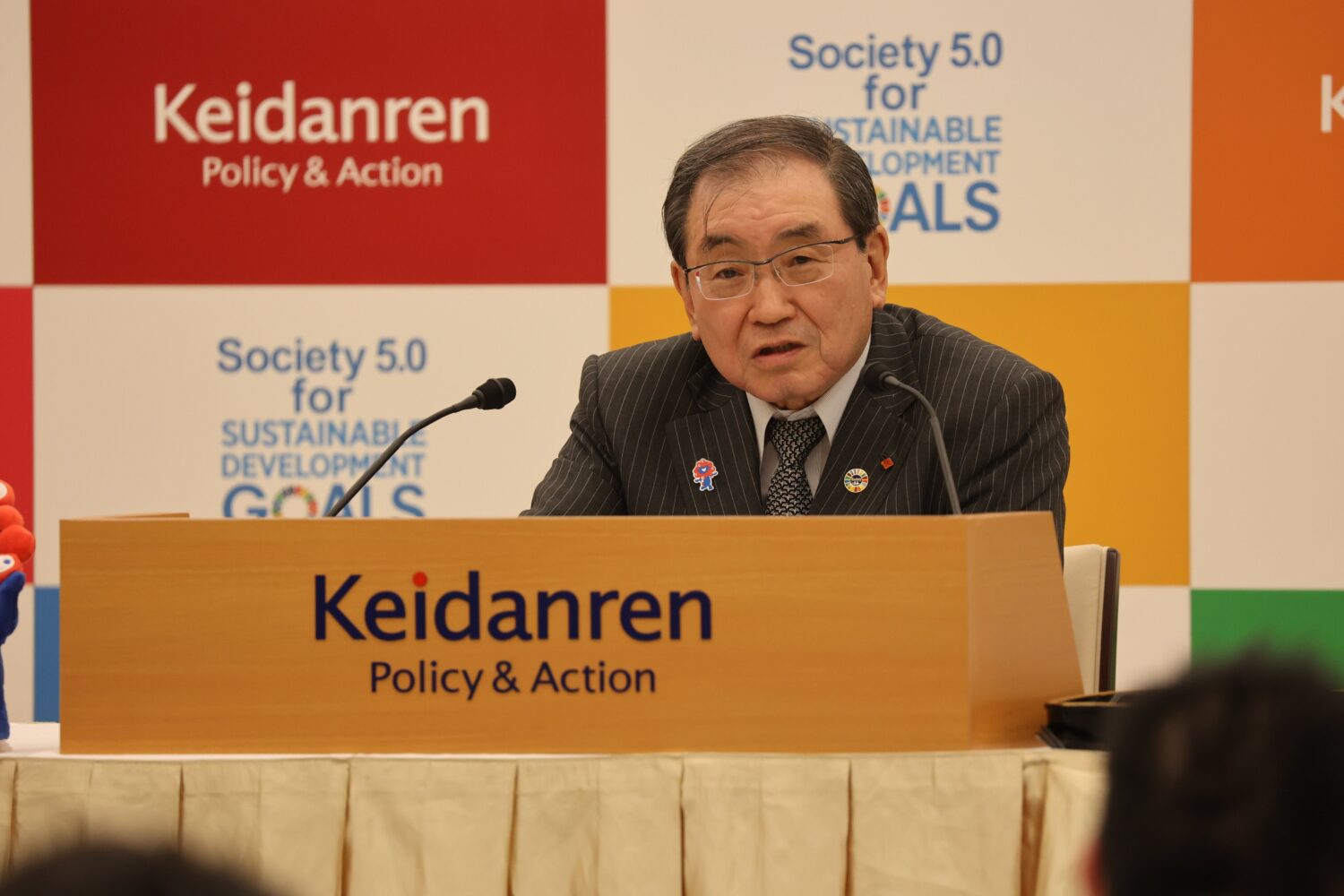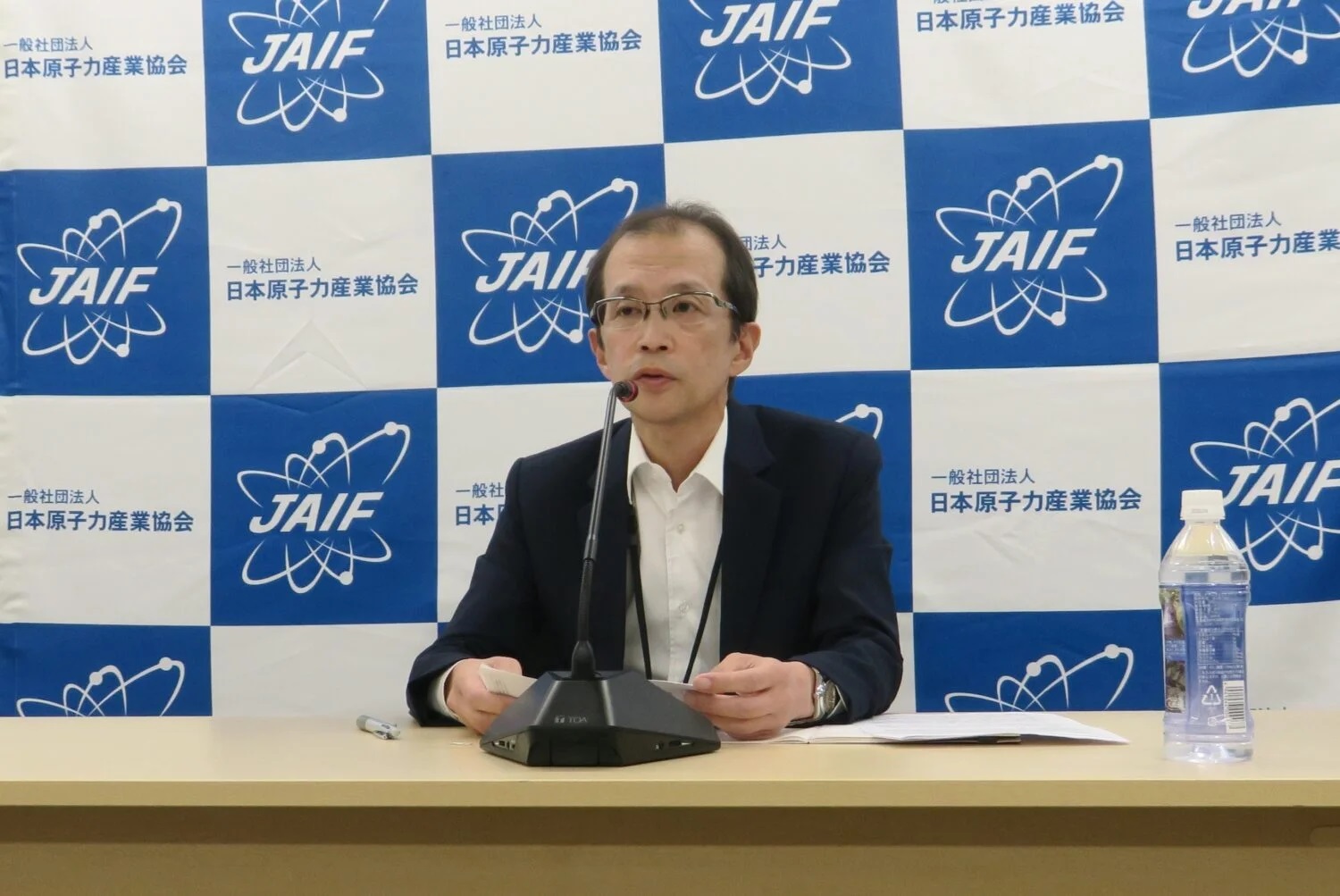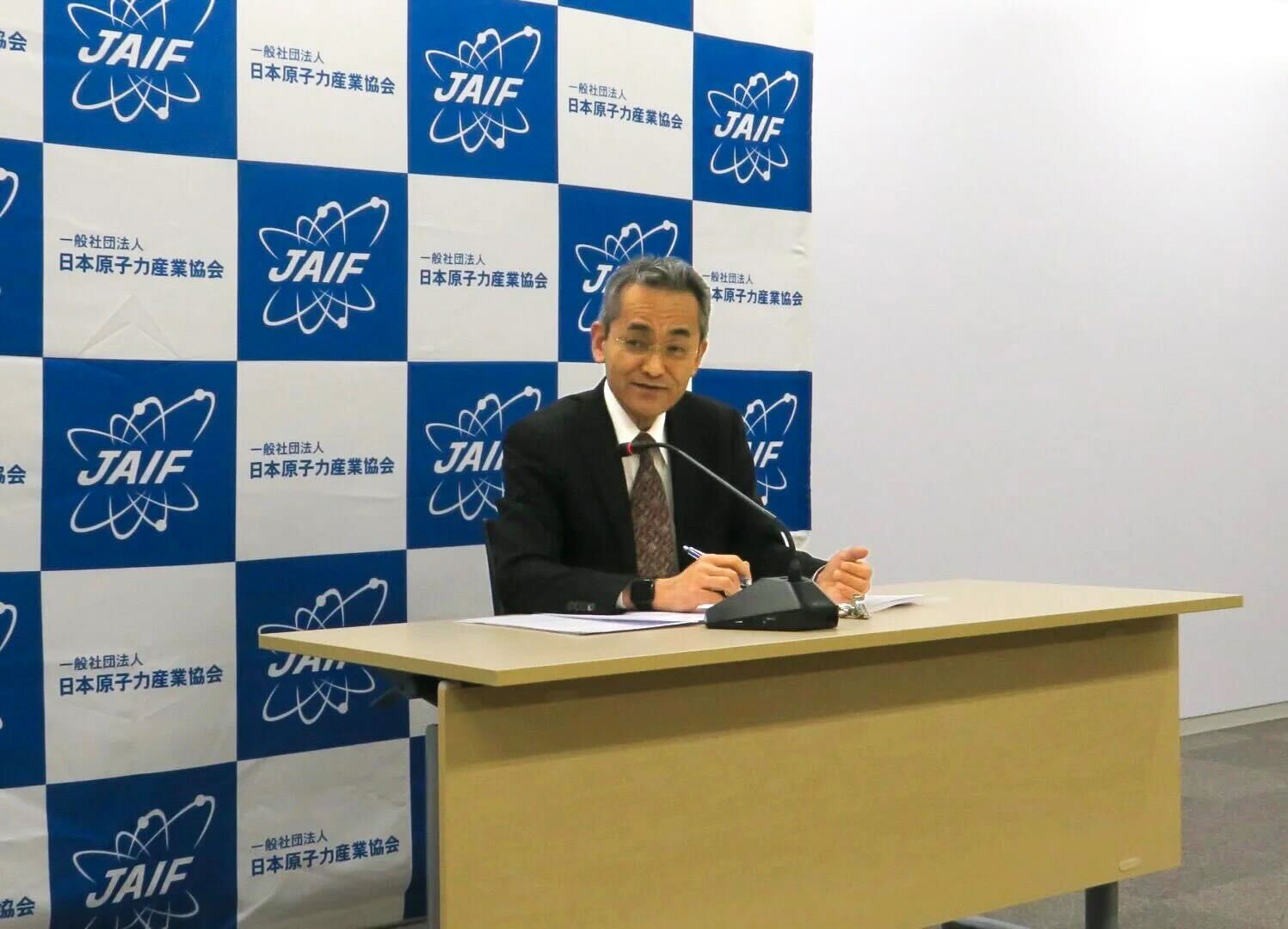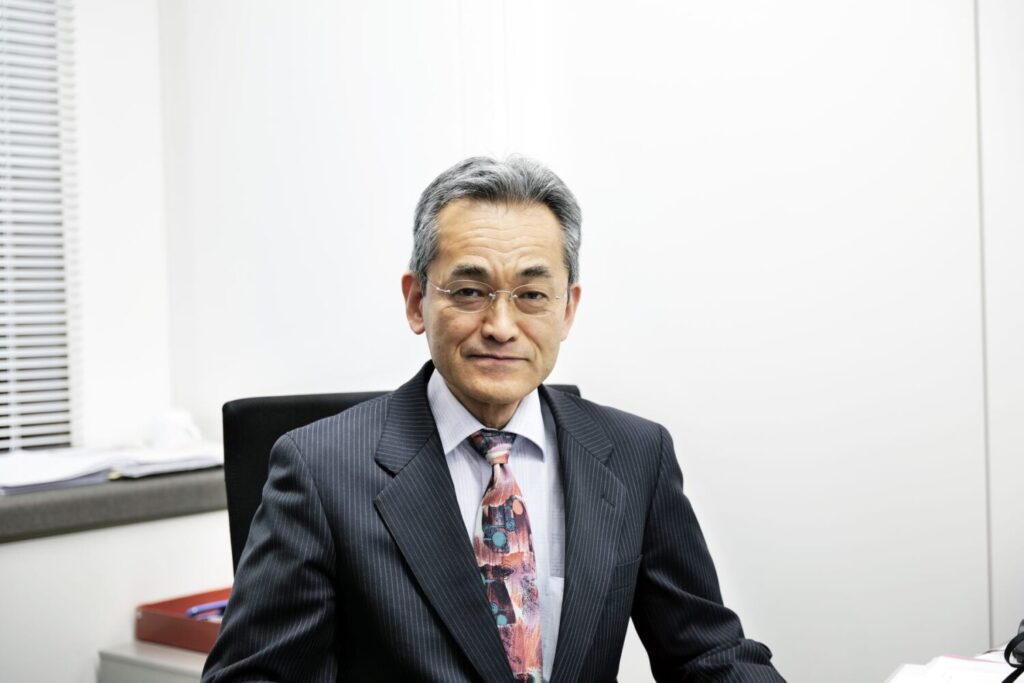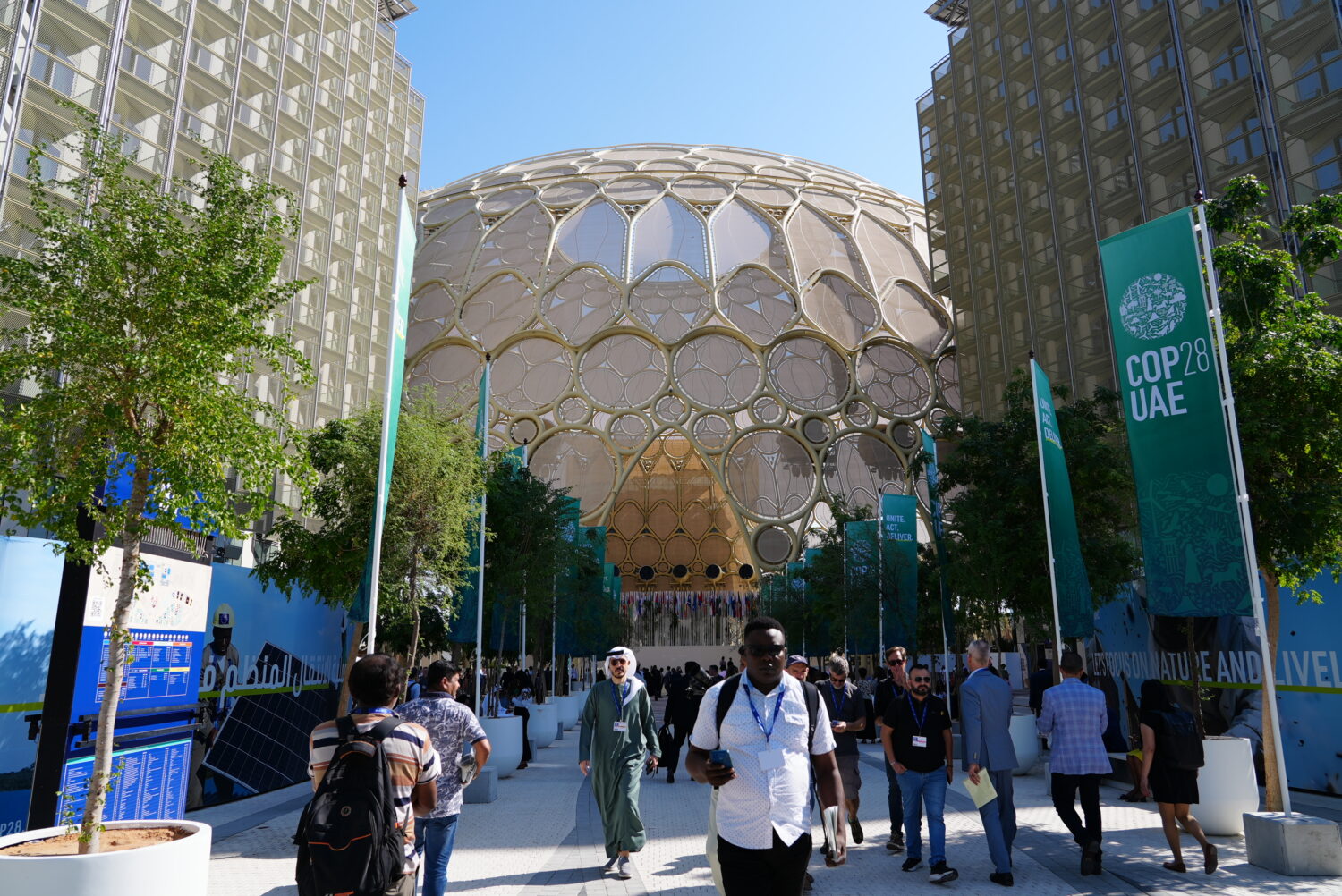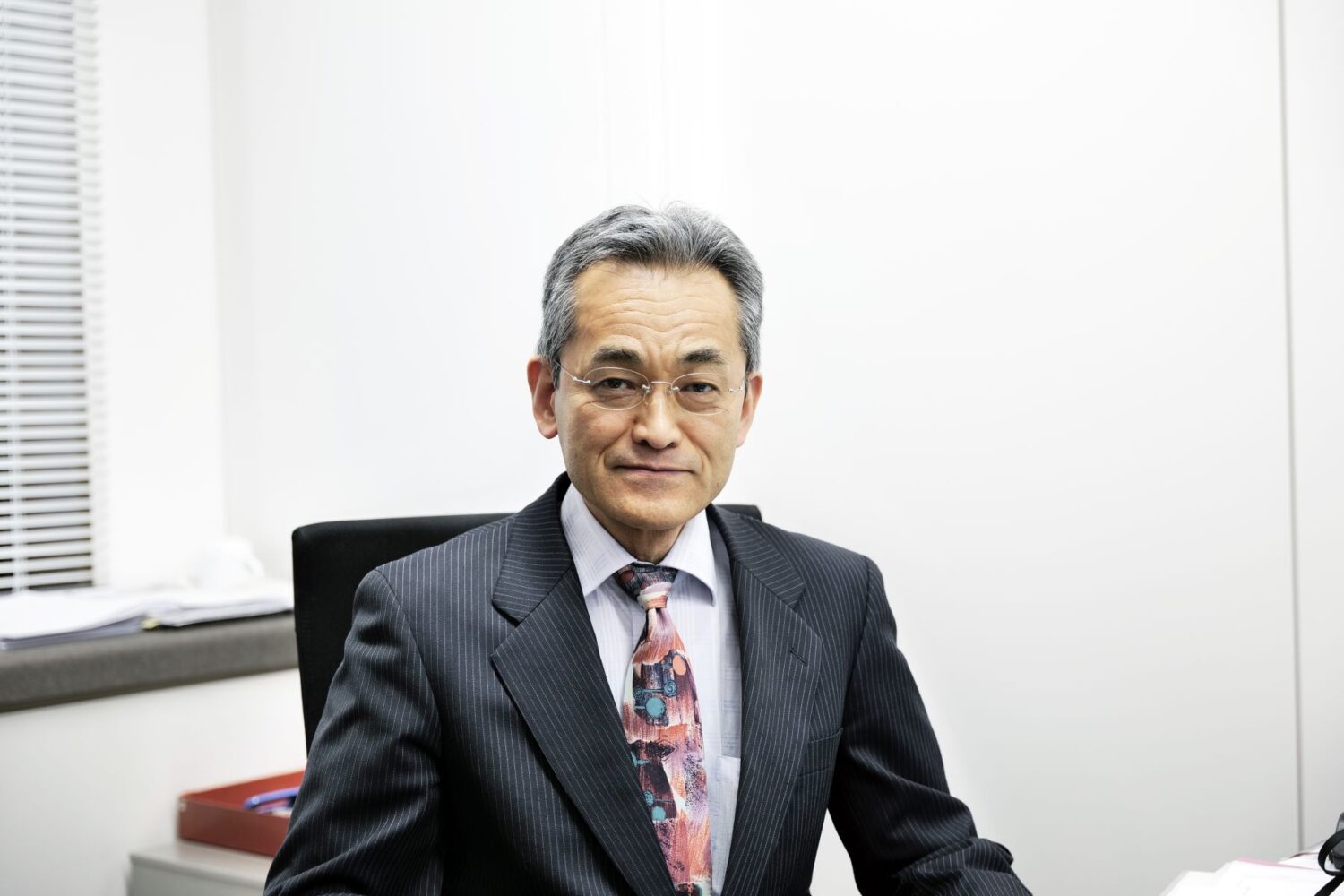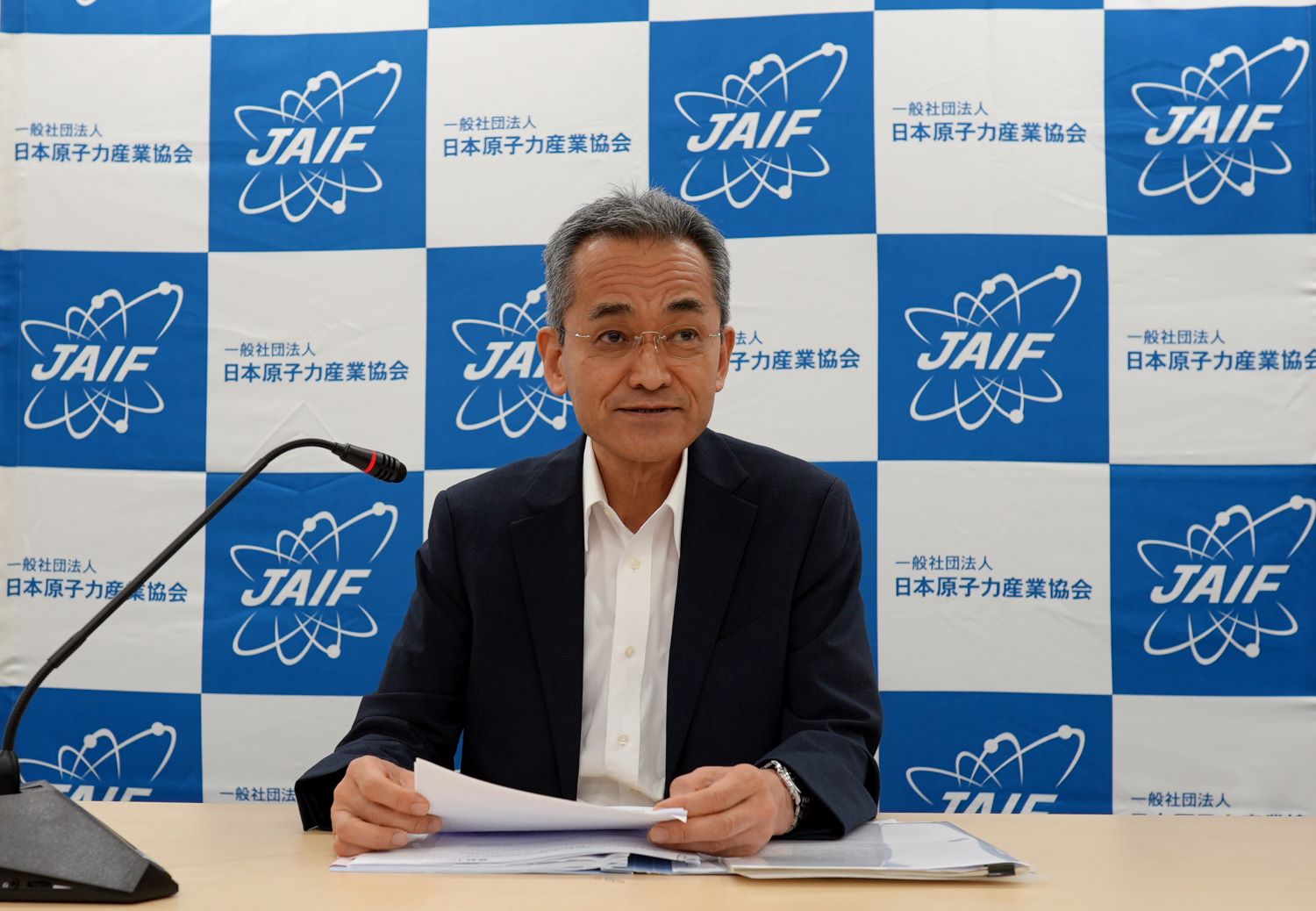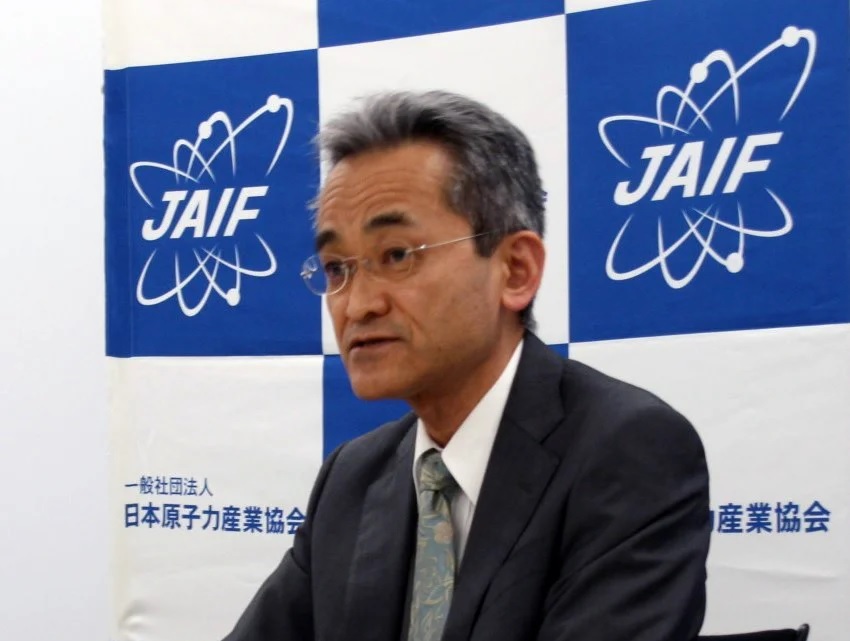The Advisory Committee for Natural Resources and Energy’s Strategic Policy Committee began discussions on May 15 on revising the current national Sixth Strategic Energy Plan. That plan, originally issued in 2021, is due for revision after three years under law. According to sources, a draft of the next plan will be prepared by the end of the year and will be approved by the Cabinet in February 2025 or so.
President Arai stressed the basic stance that energy policy is the foundation of Japan’s economy and people’s daily lives, and said that he expected the government to discuss the matter thoroughly. Looking back at 2021, when the current plan was issued, he said that with geopolitical circumstances having changed dramatically since then, nuclear energy is increasingly being recognized not only for its usefulness in decarbonization efforts but also as a means of energy security.
He then turned to efforts overseas. He referred to a British plan to add as much as 24MW of new nuclear capacity by 2050 and Japan’s endorsement of a joint ministerial-level declaration by 25 countries at the COP28 UN Climate Change Conference in Dubai, UAE, held from November 30 to December 12 last year, which ambitiously pledged to triple global nuclear capacity by 2050 from the 2020 level.
Domestically, he noted that while Japan’s policy of maximizing the use of nuclear power had been stated in the basic policy approved by the Cabinet in February 2023 for implementing the nation’s green transformation (GX), there remain various issues associated with the ongoing liberalization of the power market.
Language in the current strategic energy plan to the effect that Japan is “reducing dependency on nuclear power as much as possible” will obviously be revised, and President Arai urged that a policy of “maximum use of nuclear energy” be clearly stated, based on the need to increase new and replaced nuclear capacity under the Strategy for Promoting the Transition to a Decarbonized Growth-Oriented Economic Structure (GX Promotion Strategy) approved by the Cabinet in July 2023.
He then asked that deliberations include the following:
- Making maximum use of existing reactors.
- Maintaining and strengthening nuclear supply chains.
- Developing a business environment enabling nuclear operators to make investment decisions at appropriate times.
- Promoting public understanding (i.e., sharing the value of nuclear energy with the public).
Given the increasing demand for electricity stemming from the construction of new data centers and semiconductor plants in Japan, and with nuclear power to be the predominant source of stable power generation—i.e., as a base-load power source—President Arai asked for clear statements to be made about the required capacity for nuclear energy and a timeline for that.
He additionally said that he hoped that the government would fully discuss the value of nuclear energy and broadly share those discussion with the public, stressing that it contributes to economic growth and industrial competitiveness.
He concluded by saying that he would offer further opinions to the advisory committee’s nuclear energy subcommittee and others from now on.






